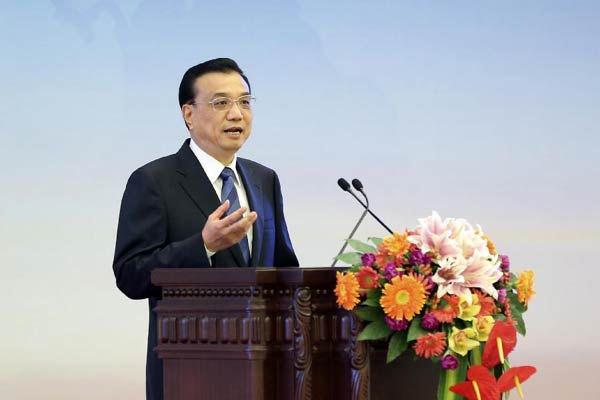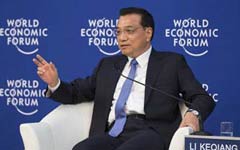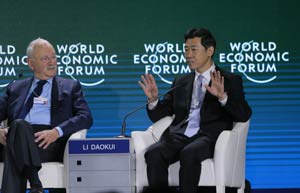 |
|
Chinese Premier Li Keqiang gives a speech at the China Quality Conference in Beijing, China, Sept 15, 2014.[Photo/Xinhua] |
Premier Li Keqiang assured Western companies on Monday that China welcomes overseas firms competing in China's market under the principle of fairness.
His comments come as a string of antitrust investigations has prompted speculation that China no longer welcomes Western investors.
"China's door will only open wider. We are committed to taking our opening-up policy to a higher level and we advocate trade liberalization," Li said at the China Quality Conference, attended by dozens of foreign corporate leaders and foreign experts on quality management.
The premier told overseas investors that China welcomes foreign companies competing in its market and mutually benefiting in collaboration with Chinese counterparts.
 |
 |
It is the second time in less than a week that Li has emphasized the consistency of China's opening-up policy. On Wednesday, at the World Economic Forum in Tianjin, he dismissed the concerns of foreign corporate leaders that China's anti-monopoly probes are targeting foreign companies and reassured them that China's door will never be closed.
China's antitrust authorities have conducted probes since July. Most major global automakers, including General Motors, BMW, the Audi division of FAW-Volkswagen, Mercedes-Benz, Tata Motors' Jaguar Land Rover, Fiat Chrysler, Toyota and Honda, have been the subject of the probes.
Twelve Japanese auto suppliers were fined a total of 1.24 billion yuan ($202 million) by the National Development and Reform Commission for manipulating prices.
The European Union Chamber of Commerce in China said in August that although the antitrust law is "beneficial for developing a healthy market economy in China", the chamber had a number of concerns about the recent moves.
In Monday's speech, Li also promised to continue expanding imports and to give more foreign companies access to China's service industry.
China's imports in August continued to contract and stood at $159 billion, a year-on-year decline of 2.4 percent, compared with a 1.6 percent drop in July and a market expectation of a 3 percent rise.
For the first eight months, imports rose by 0.6 percent to $1.28 trillion dollars, while exports gained by 3.8 percent.
